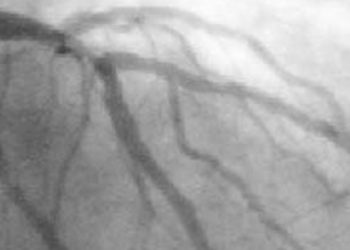Perioperative levels of BNP associated with postoperative atrial fibrillation risk after noncardiac surgery
Evidence Rating Level: 2 (Good)
1. Preoperative levels of brain-type natriuretic peptide were independently associated with postoperative atrial fibrillation risk after noncardiac surgery.
Postoperative atrial fibrillation (POAF) after noncardiac surgery has been associated with prolonged hospital stays and an increased risk of stroke and death. As an established marker in heart failure management and diagnosis, levels of brain-type natriuretic peptide (BNP) are used to predict cardiovascular morbidity and mortality, including new onset AF. However, its ability to predict POAF after non-cardiac surgery remains unknown. From VISION (Vascular events In non-cardiac Surgery patients cOhort evaluatioN), a prospective international cohort study, 37 760 patients were included in the analysis. Patients were phoned to gather data on whether they experienced clinically important POAF within the 30 days following their procedure, while blood samples were collected from 9 789 patients (26%) to measure pre-operative N-terminal pro-BNP levels. Results showed that the incidence of clinically important POAF following noncardiac surgery was 1.0% (95% CI 0.9-1.1), which was at its highest after major thoracic surgery (3.2%, 95% CI 2.3-4.4). Using logistic regression models and an NT-proBNP level of 100 ng/L as a reference value, increasing preoperative NT-proBNP levels of 200, 1500, and 300 ng/L were associated with adjusted ORs for POAF of 1.31 (95% CI 1.15-1.49), 2.07 (95% CI 1.27-3.36), and 2.39 (95% CI 1.26-4.51) respectively. Compared to other potential predictors in their model, NT-proBNP provided 16% more information over other prognostic factors. However, shorter, mostly asymptomatic episodes of POAF were likely not captured through their survey methods, as no extended holter monitoring was used. Given this predictive value of NT-proBNP in POAF, further studies should explore whether there is an underlying causal relationship with different cardiovascular diseases, which may lead to cardiac stress elevating these BNP levels.
Click to read the study in CMAJ
Image: PD
©2020 2 Minute Medicine, Inc. All rights reserved. No works may be reproduced without expressed written consent from 2 Minute Medicine, Inc. Inquire about licensing here. No article should be construed as medical advice and is not intended as such by the authors or by 2 Minute Medicine, Inc.







